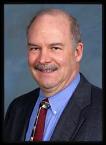The Differences Between Professionalism, Certification, and Licensure:
Why it Matters, and the Commercial Real Estate Summit™.
Bart Binning, Ed. D.
At a time when the Internet, virtual & augmented reality, and mass communication are automating business processes and changing the way we do business, the interpersonal interactions between trusted business stakeholders are becoming increasingly important. Historically, concepts of professionalism were once embraced by master craftsman and guilds, with training through an apprenticeship program. Today, this concept of professionalism is carried on through related definitions of a Profession, Professional Certification and the Licensure of that Profession. The US Department of Labor lists the following five requirements to be recognized as a profession:
- National organization to speak for members and foster development.
- Code of ethics to identify standards for behavior
- Applied research to develop the field
- Defined body of knowledge
- Credentialing organization to set professional standards
Professional Certification is when there is a body of knowledge, skills and abilities whose mastery is not readily achieved by laypersons. And there is a recognized professional credentialing organization that establishes a code of ethics as well as certification tests to show mastery of the profession’s body of knowledge.
Licensure carries the concept of the Professional Certification a step further by codifying in a States legal code requirements to practice the profession. These licenses are usually issued to regulate some activity that is considered to be dangerous, a potential threat to the public, or involves a high level of specialized skill. Justification for state Licensure is usually predicated on the following four conditions (as described by the American Institute of Architects):
- the improper practice of the trade or profession must impact substantially the health, safety, and welfare of the public
- the members of the public at risk must be unable to protect themselves satisfactorily from injury without the intervention of the state
- the trade or profession seeking registration must be willing to have the state develop rigorous entry criteria necessary and appropriate to protect the members of the public at risk from unqualified practitioners.
- the trade or profession seeking registration must be willing to have the state regulate the actual practice of registrants to the extent reasonably necessary to protect the public.
One of the industries’ obligations to support the profession is to support “Applied research to develop the field.” The University of Central Oklahoma’s Finance Department operates the state’s only Real Estate Program at a college/university. The UCO Real Estate Program is the official charity of the Central Oklahoma Commercial Association of REALTORS® (COCAR), and we are working to create an endowment for the UCO program. COCAR and the UCO Real Estate Program are co-creators of Commercial Real Estate Summit™. COCAR and Jack Werner (a South OKC Rotarian) of A to Z Inspections, are matching donations, up to $10,000, towards the UCO Real Estate Program Endowment.
COCAR and the UCO Real Estate Program co-created the Commercial Real Estate Summit™ as tool to promote professionalism in the commercial real estate community. The Summit is an annual event designed to bring tougher all facets of the commercial real estate industry together, at one time, and in one place, to network, discuss items of common interest, network, and receive appropriate professional continuing education credits. This year’s Summit will be September 20, 2018 at the Cox Center in Oklahoma City. This year’s Summit will have about 25 sessions grouped into topical tracks covering Tax and Legal issues, Development and Investment, Economic Development and Technology, Facility Management, and Real Estate Brokerage.
The Summit’s 2018 session topical areas include:
- Lunch Keynote by Glenn Muller, Ph.D., Real Estate Investment Strategist at Dividend Capitol Group (a major national real estate investment company) and Professor in the Burns School of Real Estate and Construction management at the University of Denver
- The Tax Reform Act and modifications to Dodd Frank with separate sessions conducted by Evan Liddiard (National Association of REALTORS Director of Tax Policy); Greg Lehrmann (Asset Preservation; a Stewart Title and Abstract company); Miles Pringle, JD (club 29); and Mark Neumeister, CPA (club 29)
- Medical Marijuana and its impact on Commercial Real Estate with separate sessions conducted by Evan Way, JD, of Crowe & Dunlevy; and David Chapman, PhD of the University of Oklahoma and Commissioner at the Oklahoma State Real Estate Commission.
- Real Estate Market and Valuation Issues, with separate sessions by Darin Dalbom, MAI, Jones Lang LaSalle Valuation; and Mike Fitter of Seneca Environmental
- Changing landscape of the commercial real estate industry with separate sessions by Mark Beffort, Newmark Grubb Levy Strange Beffort (club 29); Morgan Jones, AIA, of the Metropolitan Library System; and David McIlhatten of Coventry University, UK, on Protection of Property & People, including active shooter situations.
For more information, goto www.CRESummit.org

